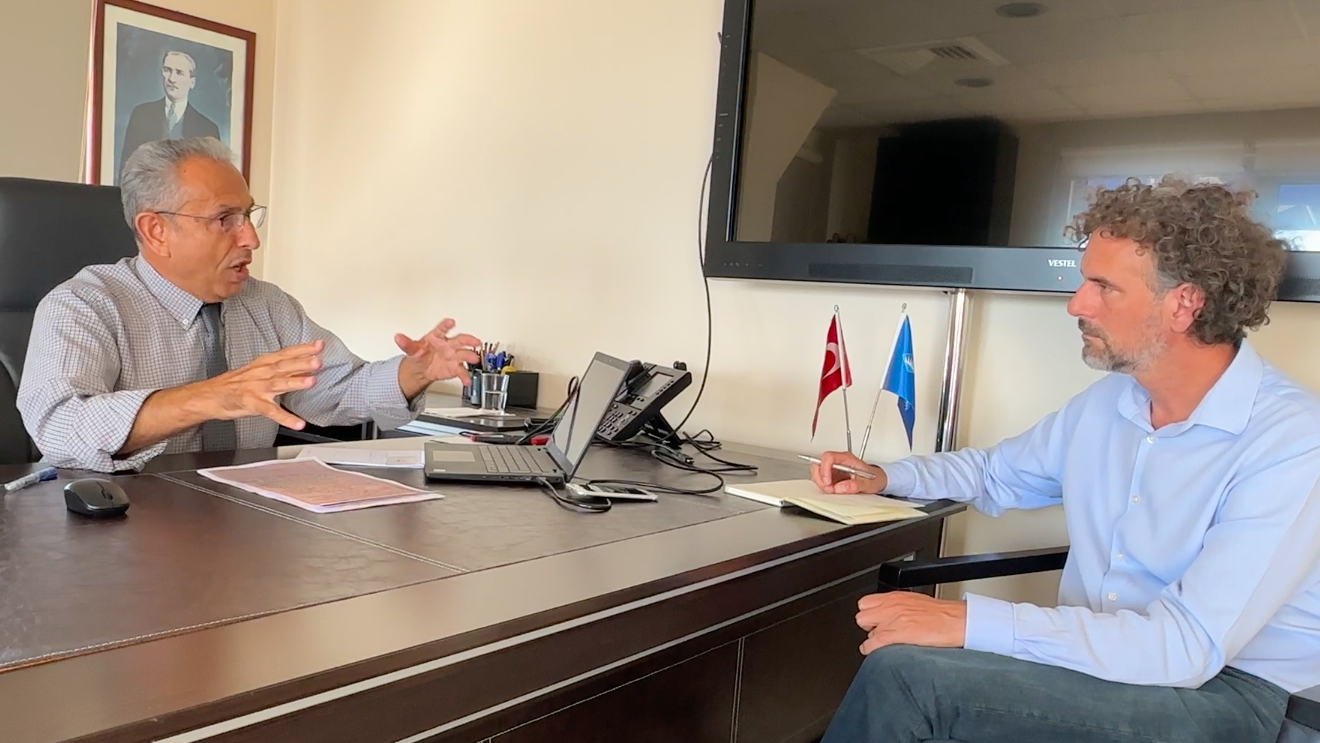Russian President Putin’s proposal to establish a gas energy hub in Türkiye is in negotiations between the Russian company Gazprom and Turkish BOTAŞ, state-owned-entreprise responsible for transportation and sale of natural gas.
We spoke about the idea of becoming an energy hub with Professor Şenay Yalçın from the Bahçeşehir University in Istanbul. An Yalçın spend his entire academic life researching energy technology and politics.
What is the main idea behind the proposal of an energy hub in Türkiye?
Now a hub’s mission is the following. You will either be the main primary energy source producer. You will create a structure to market your own capacity and resources to the outside world.
The other concept of a hub in the world or the concept of being an energy center, is that other countries’ reserves are moved to the country that will be the hub, that is, imported from there, then processed here and exported again to other countries.
Türkiye voiced this proposal several times, starting from the 90s on. But it needed the Ukraine crisis, fueled by the US, the explosion of the NordStream 2 pipeline to get more on the agenda.
What motivation have different actors to approach the proposal positively?
On one side is Russia. Russia saw that Europe is cutting gas imports and tried to find alternativa markets in Pakistan, China or India. It increased exports there, but no to the amount needed to substitute the European market. So, Russia needs to sell its gas.
Then there is the European Union. It looks for a way out, to buy the gas from Russia indirectly, so that it can maintain the perception of not buying from Russia directly.
Here, Russia proposes to sell the gas to Türkiye, which then becomes Turkish gas and exported to third countries.
Türkiye’s independent foreign policy obviously provides an advantage, as the country gains the trust of others.
What is the role of trust here exactly?
To become a hub, a country needs to provide security: The security to get the needed energy from other exporters, and the security to deliver the energy to the final markets. Türkiye has taken important steps to provide these assurances.
To have secure access, Türkiye has connections with various gas providers, from Russia to Azerbaijan, from Iran to Central Asian countries such as Turkmenistan, Uzbekistan or Kazakhstan. Energy cooperation is one of the main agendas of the Organization of Turkic States.
Secondly, Türkiye has constructed several pipelines, from TANAP to TurkStream and the Blues Stream. The Easter Anatolian pipeline and others. Hence, there is security of the transfers.
And recently, even the relations with Egypt and Israel are improving, two countries that have discovered huge amounts of gas in the Eastern Mediterranean.
And of course, Türkiye has discovered its own gas fields in the Black Sea, which amount to 710 billion cubic meters for the time being.
In addition to that, Türkiye’s technological capacity in in gas discovery, exploration and transfer has developed significantly. This happened as a consequence of serious investments in energy technology. And finally, Türkiye has increased its storage capacities.
This all provides a good basis to become a hub.
How do you think will the United States approach the idea of Türkiye becoming a hub?
They will not consider it positively. Türkiye is the competitor of the US in several parts of the world, starting with the Middle East. Besides, the US wants to sell its shale gas to Europe. Therefore, Türkiye becoming a gas exporter to the European continent is not in their interest.
At the same time, importing gas instead of American LNG is much more rational for Europe, as the price is cheaper and the delivery is much more guaranteed: you don’t need to wait for the hip to arrive from the US at the FSU terminal. Just open the valve, and the gas flows.
All the roads lead to Türkiye. But we need to be prepared: there will be all kinds of terror attacks against pipelines, against infrastructure. Here, Türkiye’s air defense systems play a crucial role.
Does Turkish foreign policy serve this objective?
Of course. Türkiye pursues a balanced policy. It does not want to side with a block. It is a NATO member, but it does not want to cancel relations with Russia. It establishes strong relations with Central Asian Turkic states. And above all, it presents itself as a reliable partner, whose word can be counted on.
Do you expect progress very soon in establishing the hub?
There are already agreements with Hungary, Bulgaria and Greece. Within the few coming years, Türkiye will become an energy hub. I am sure about that.
This interview was made on behalf of and partly published by TeleSUR before.

















Leave a Reply